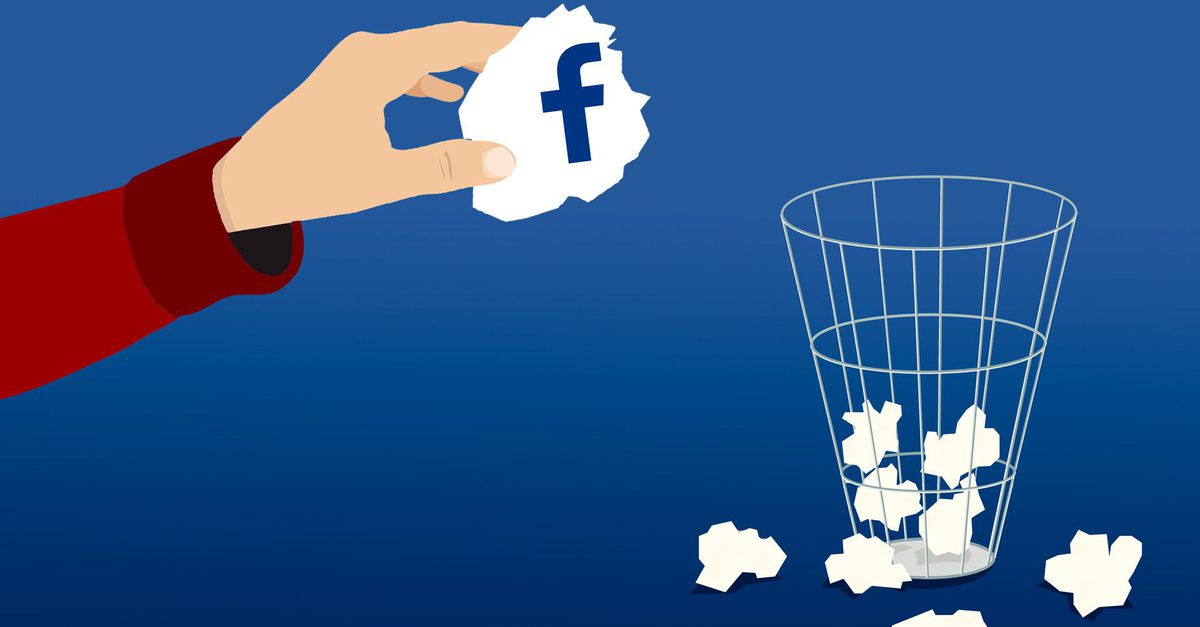Flashback to middle school and high school: what was one thing kids wanted if they didn’t have one already? A Facebook. If you didn’t have a profile, you couldn’t connect with friends and the entirety of your grade, post about your grocery trip that your Mom forced you on or play Farmville.
Now, times have changed, and a movement to delete Facebook is sweeping the nation. Once a whistleblower exposed Facebook’s knowledge of data theft, #DeleteFacebook was a trending topic on Twitter.
#DeleteFacebook has garnered a lot of attraction, and people are spreading the word to delete the once sought after social profile. Among those who are responding to the call, former Facebook executive Brian Acton Tweeted, “It is time. #DeleteFacebook.” With the growing population of people deleting their accounts, Mark Zuckerberg should be worried about the downfall of his company.
When Mark Zuckerberg created Facebook back in 2004, people were enthralled by the ability to post photos and daily statuses of activities they did during the day. After all, one thing that everyone wants is the ability to communicate with others.
Originally, the site was confined to just Harvard students because that was where Zuckerberg was located when he created it. In 2005, however, other universities in the United States joined the site, as well as international universities.
The year after, Facebook officially became accessible to everyone aged 13 or older who had a valid email address. Currently, Facebook is in the midst of a period of uncertainty in which Zuckerberg is trying to console his employees who fear the company is going under.

This month, insiders revealed that personal information from about 50 million users was sold to Cambridge Analytica, a political consulting firm that worked for Trump’s campaign. Ultimately, Aleksandr Kogan created a quiz app that allowed him to gain access to Facebook profiles of people who downloaded the app as well as their friends.
Since the firm is politically motivated, the company used the information to perform targeted marketing on individuals based on their likes and interests.
Consequently, this exposed a loophole in Facebook’s application programming interface that makes it possible for third-party developers to extract data from profiles of people who use the apps created and their friends.
Apparently, Facebook has a rule that states no one is allowed to market or sell this data, but the regulation was violated. At the core of it all, the problem here is the fact that Facebook users’ information is not private, and companies are allowed to gain access to it.
When looking back over the faults of Facebook, this is the last straw that drove the campaign of #DeleteFacebook. Since there have been previous concerns about people’s privacy on Facebook, many have officially become fed up with having their privacy rights violated.
In 2006, Facebook introduced News Feed which showcased what people’s friends were doing so people didn’t have to go to individual profiles. Ultimately, people were uncomfortable with having everything they did projected for their friends list, which, let’s be honest, is often comprised of many strangers.
In 2007, Facebook introduced Beacon, which allowed companies to track people’s purchases and notify their friends about what they recently bought. Consequently, it caused many to speak out because it was done without their consent.
Since Facebook’s creation, there has been a number of privacy issues that the company has quelled, and the examples mentioned above are just two of them. Throughout the years, Facebook has apologized and tried to mend the trust between users and the company, but the social media platform has breached the line of no return.
At 14 years, Facebook is past the point in which apologies will cover the mess they took part in. Moreover, the fact that they knew about the data theft but denied it officially broke any trust people felt with the company. In fact, the Cambridge Analytica scandal has caused the Federal Trade Commission to launch an investigation into Facebook’s privacy practices.
In the past, apologies and giving people the ability to choose not to be involved in something were able to stop people from deleting their profile. Today, people are not accepting false apologies, and one person on Twitter, Marina Sirtis, tweets: “IMO Mark Zuckerberg’s ‘apology’ rings as hollow as the ‘thoughts and prayers’ we get from politicians. #DeleteFacebook.”
On this thread, others expressed that they were done “being screwed over” by Facebook and that it was time to #DeleteFacebook.
https://twitter.com/Marina_Sirtis/status/978279285608783872
With other apps that allow people to connect, such as Instagram and Twitter, deleting Facebook isn’t that much of stretch and may actually be better for people. Although it won’t be easy for some, taking the step of deleting Facebook can be liberating, and people won’t have to wait for the next announcement about a breach of security.
But, is this the end of Facebook? Honestly, it’s hard to tell because, in the past, Facebook has been able to bounce back from prior privacy scandals. On social media, people say that Facebook is a necessity for them because of their business, which relies on the ability to connect to many individuals.
Even with repeated violations of privacy, some users can still see the beneficial use of reaching a wide audience. But, with an FTC investigation into the company’s privacy practices underway, the FTC could uncover information that would officially end Facebook’s reign as the most popular social networking site.

















